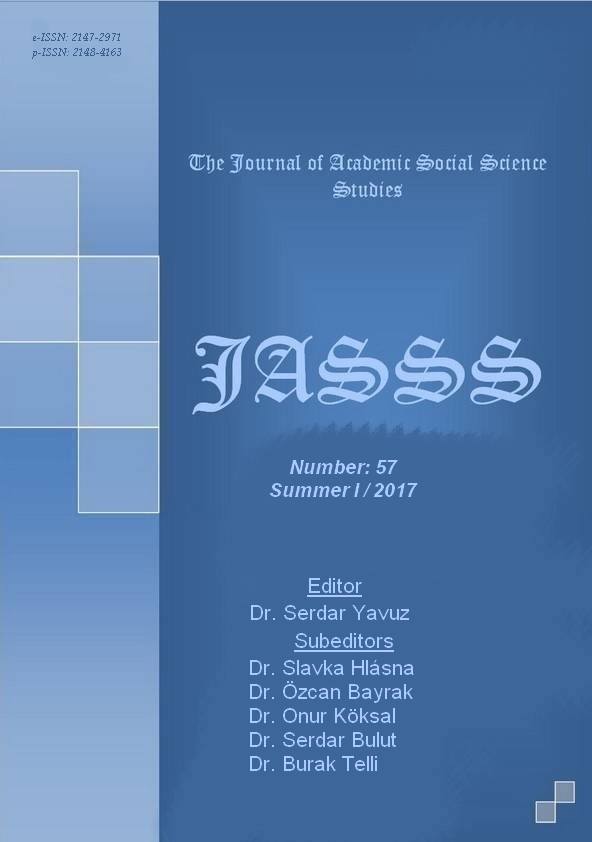ÜLKELERARASI EKONOMİK BÜYÜME FARKLILIKLARININ AÇIKLANMASINDA KURUMSAL YAPININ ROLÜ: DÜŞÜK, ORTA VE YÜKSEK GELİRLİ ÜLKELER ÜZERİNDE BİR UYGULAMA (1996-2014)
Author :
Abstract
Bu çalışmada, ekonomik açıdan düşük, orta ve yüksek gelirli olarak gruplandırılan ülkelerde kurumsal yapı göstergelerinin ekonomik büyüme üzerindeki etkileri 1996-2014 dönemi için yeni nesil panel veri analizi metodolojisi kapsamında ampirik olarak araştırılmaktadır. Bu açıdan çalışmada, dünya genelindeki ülkelerin gelir düzeylerinin ve/veya uzun dönemde ekonomik büyüme performanslarının farklılaşmasında kurumsal yapı göstergelerinin etkilerinin değerlendirilmesi amaçlanmaktadır. Çalışmanın sonucunda, örneklem döneminde yüksek gelirli ülkelerde kurumsal yapı göstergelerinin ekonomik büyüme üzerindeki uzun dönemli etkilerinin pozitif yönlü ve istatistiki olarak anlamlı olduğu belirlenmiştir. Buna karşılık, düşük ve orta gelirli ülkelerde kurumsal yapı göstergelerinin ekonomik büyüme üzerindeki uzun dönemli etkilerinin negatif yönlü ve istatistiki açıdan genellikle anlamlı olduğu tespit edilmiştir. Bu sonuçlar, çalışma döneminde kapsanan ülkelerin; düşük, orta ve yüksek gelirli olarak refah düzeyi ve/veya uzun dönemde ekonomik büyüme performanslarının sürdürülebilirliliği bakımından farklılaşmalarında, fiziksel-beşeri sermaye birikiminin yanında sahip oldukları farklı nitelikteki kurumsal yapının da önemli derecede etkili olduğunu göstermektedir.
Keywords
Abstract
In the study, it is empirically investigated that the effects of institutional structure indicators on the economic growth in countries which are grouped as low, medium and high income in economic terms within the framework of new generation panel data analysis methodology for the period 1996-2014. In the study of this aspect, it is intended that the differentiation of the economic growth performances in long-term and/or income levels of countries around the world is to evaluated the effects of institutional structure indicators. As a result of the study, in the sample period it was determined that the long-run effects of the institutional structure indicators on economic growth in the high-income countries were positive directional and statistically significant. In contrast, it was identified that the long-run effects of the institutional structure indicators on economic growth in low and middle income countries were negative directional and statistically significant in generally. These results indicate that the countries which are covered in the study period; differentiation in terms of welfare level as low, medium and high income levels and/or the sustainability of economic growth performances in long-term has a significant effect on of the institutional structure in the different qualities they possess in addition to the accumulation of physical-human capital.





